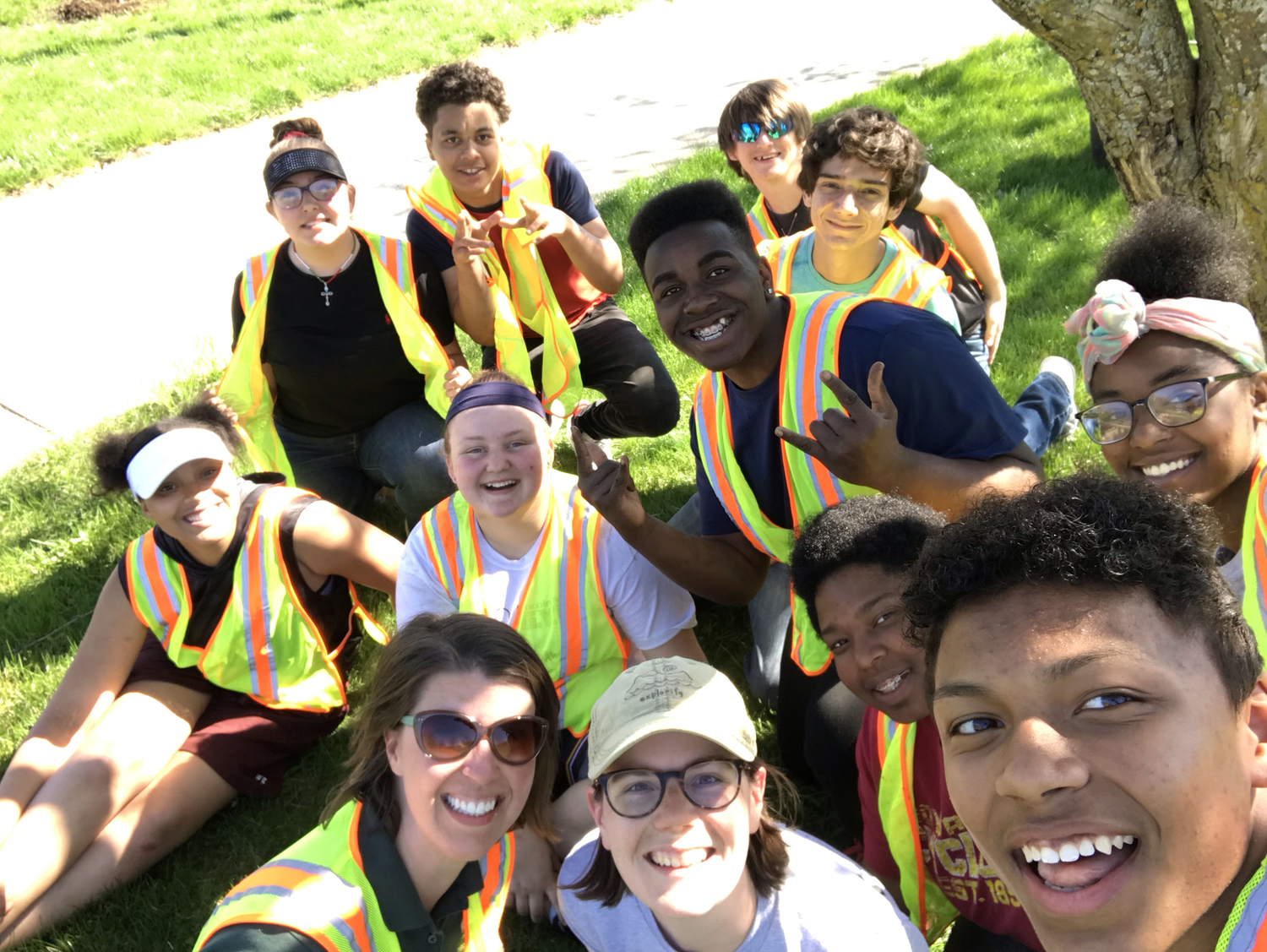Growing Futures meets city’s current tree care needs and exposes students to potential careers

The tree care industry, like many sectors of the economy in the U.S. today, is facing a major shortage of qualified labor. In cities around the nation, that shortage is compounding issues facing municipal leaders challenged to maintain and grow green spaces, many of which include trees.
Des Moines, Iowa, faced this exact convergence of circumstances; the city’s tree-lined streets and parks required attention and the region was facing a shortage of experienced workers. Now, a unique collaboration among the city, nearby private industry and an organization dedicated to the maintenance and development of tree populations is supporting the tree care labor conditions as well as benefiting the city’s largest flora.
Trees Forever is a “hands-on conservation” organization in Iowa and Illinois dedicated to building and improving the region’s green spaces. Much of the group’s work happens within communities like Des Moines, where it promotes the benefits of healthy tree populations, such as reduced energy consumption, soil and water preservation, and habitat for native animals and pollinators.
Meeting workforce and community needs
When the nonprofit’s leaders saw the opportunity to both better serve Des Moines’ municipal tree care needs and connect young people interested in pursuing a career in the tree care industry, they launched Growing Futures.
Entering its first full year, the program connects young people with educational teams and municipal arborists to help serve the city’s tree care needs. It is also a great way to raise awareness about a career field that’s facing a major shortage of qualified personnel right now, according to Leslie Berckes, Trees Forever program development and innovation director.
“The city of Des Moines has one of the best forestry programs in the region. They plant and care for trees around the community, and that makes them a great partner for this program. We think of this program as an investment in the city’s trees,” Berckes said. “We also want this program to become a pipeline for future arborists, matching workers with companies through exposure and apprenticeship programs. We want to help train new people to become tree care professionals.”
Growing futures goals
Students participating in the program learn a variety of skills appropriate to their plans after high school graduation. The tree care industry offers a range of opportunities — many of which are in high demand right now; Berckes said Growing Futures tries matching students with their desired future ambitions, while also providing critically important educational opportunities that aren’t necessarily tied to a specific career path.
“The goal of the program is to build the whole person and provide opportunities to pursue the right career. We stress communication, teamwork, and financial literacy skills,” she said. “For a lot of kids this is their first job, and we want to prepare them to be responsible and financially prudent down the road as they firm up their pathways into the workforce.”
Those pathways span from apprenticeship tracks that lead to two- or four-year college degrees or directly into the workforce upon graduation. Matching students with the right career path are a major component of Growing Futures.
“Sometimes, it’s a natural tendency to limit potential pathways by creating expectations early on. With such a diversity of students participating, we don’t want to limit pathways,” Berckes said. “We focus on collaboration and provide all the resources they need to pursue what they think is best for them.”
“Walk to the farthest tree”
“We have a philosophy of ‘Walk to the farthest tree,’” she said. “Our students are doing it. They’re walking to the farthest tree and learning how to get the job done. They’re making connections and tree care is becoming important to them.”
In the first year of Growing Futures, 29 high school students and 5 young adult crew leaders participated in the program with another crew yet to be hired. Berckes said the accomplished organizers of Growing Futures have a primary goal of sparking interest in participating students and providing a much-needed boost to the overall effort of managing trees around the city. Of the 10 students who participated in first work session, 9 requested to return to the second work session — a sign interest is outpacing initial program parameters.
“We are rapidly approaching our capacity. We are going to have more trees to take care of than we have people and equipment,” Berckes said. “We’re eager to continue working with our partners like Vermeer Corporation to get these kids real tree care experience so they’re ready for the workforce with very specific job skills.”
As the program grows, Berckes said the prevailing mindset of Growing Futures will continue to be developing future tree care professionals and serving current tree care needs.
Learn more about Trees Forever and Growing Futures, visit http://www.treesforever.org/GrowingFutures.
This article contains third-party observations, advice or experiences that do not necessarily reflect the opinions of Vermeer Corporation, its affiliates or its dealers. Testimonials and/or endorsements by contractors in specific circumstances may not be representative of normal circumstances experienced by all customers.
Vermeer Corporation reserves the right to make changes in product engineering, design and specifications; add improvements; or discontinue manufacturing or distribution at any time without notice or obligation. Equipment shown is for illustrative purposes only and may display optional accessories or components specific to their global region. Please contact your local Vermeer dealer for more information on machine specifications.
Vermeer and the Vermeer logo are trademarks of Vermeer Manufacturing Company in the U.S. and/or other countries.
© 2019 Vermeer Corporation. All Rights Reserved.


